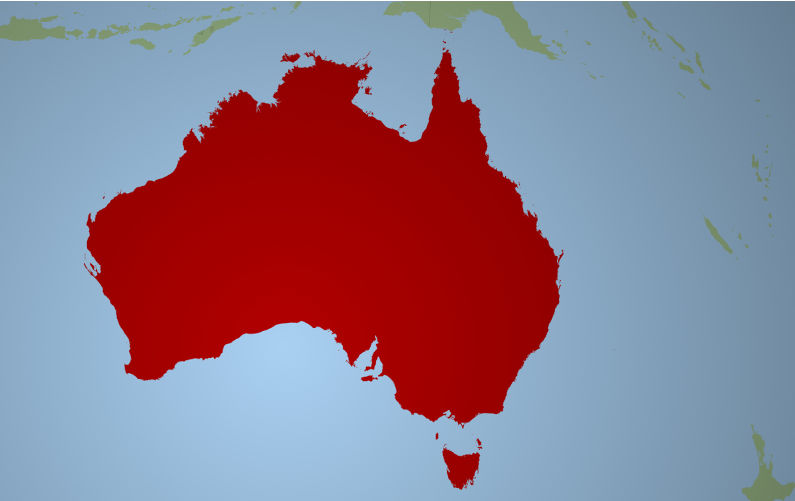Is ASIOs paranoia hypocritical?
March 5, 2024
Some of my best friends are Chinese. This is entirely unsurprising given my frequent visits to the PRC, the Chinese students I have supervised and the colleagues I have collaborated with over the years. I used to think such relationships were unambiguously a good thing and the possible basis for a better understanding between our two countries.
To judge by ASIO head Mike Burgesss Annual Threat Assessment, however, such an attitude on my part is nave and foolish. Indeed, Im apparently vulnerable to being seduced by the clandestine operatives and blandishments of one nation state in particular. I think we can assume for the sake of argument, that state is China.
But if anyone in Australia or China has been secretly trying to recruit me or pump me for sensitive information, I must admit Ive missed itapart from ASIO, at least. Ive had several chats with ASIO operatives about my contacts in China and my understanding of what goes on there. But if ASIO thinks I can tell them anything they couldnt find out from reading the occasional academic journal, they are even more poorly informed than I thought.
This may be why they harass young Chinese academics on perfectly innocent research trips to Australia. One of my former PhD students was trailed around Australia and offered bribes and other incentives to cooperate with ASIOprecisely the sort of thing Mike Burgess complained foreign agents were doing in Australia. When that failed to elicit a responseother than indignation and acute anxietyAustralias finest tried intimidation.
Three ASIO agents, three Australian Federal Police officers, and a couple of IT specialists conducted a dawn raid on his accommodation, confiscating their phone and computer while they were at it. I advised them to get back to China as quickly as they could. They did.
This was not the end of ASIOs rather ham-fisted efforts to counter supposed foreign influence either. A couple of weeks later I had an unsolicited home visit from two agents. As soon as they said, Hello Professor Beeson, were from the government and wed like to talk to you, into my apartments intercom I guessed who it was. Id been expecting some sort of follow up given their previous conduct with me, the student, and the growing paranoia about China.
A familiar routine unfolded. Who did I know? Who did the student know? Who were they meeting? What were they trying to find out? Again, the idea that a junior scholar interested in the bilateral relationship between Australia and China was going to uncover some great national secret by chatting to a few Australian academics and going to the library indicates just how disproportionate the domestic response to the China threat is becoming.
I took the opportunity of unburdening myself to the ASIO agents, but not quite in the way they were hoping, I suspect. I pointed out how counterproductive and excessively heavy-handed ASIOs actions had been, and reminded them that bilateral exchanges of students and academics had once been seen as conducive to good relations between our two countries.
Not only does that idea no longer apply, but it would be entirely unsurprising if Chinasequally paranoid, no doubtsecret police responded in kind. Indeed, my student talked me out of going to a conference in China at the end of last year because of concerns about my safety. Nevertheless, I shall be travelling there in the next month or soalways supposing the Chinese government gives me a visa, of course.
One of the things my student was most concerned about was the realistic prospect that the Australian government would not let them return in the futurenot a happy prospect for someone try to build a career as an expert on the bilateral relationship. It also potentially silences a sympathetic voice within Chinas internal debates about relations with Australia.
No doubt my views will confirm ASIOs suspicions about my loyalty. But if Im part of a network gathering intelligence on behalf of a foreign power, my role is so secret that not even I know about it. Either way, my file must be bulging, and another visit may follow. I wouldnt be at all surprised if my email and phone are routinely monitored, too. If youve got all that high tech gear and lots of agents with nothing to do
A bit paranoid? Perhaps. But Im not the one ramping up the rhetoric about the dangers posed by unnamed foreign powers and their unnamed co-conspirators. If there really is something for students and academics to worry about, lets see the evidence, or at least know which country to avoid. I know how our team operates and it does them or this country little credit. We are supposed to be the good guys, after all.
Security types will say this is the reality of the contemporary world. And yet if we are to address the common problems that confront Australia and China greater cooperation is a necessity. Building bridges, understanding the other side, and even striking up friendships with our counterparts may be part of this, however unlikely this may seem to those in the worlds secret services. We must hope theyre wrong about that, at least.
A version of this article first published in Crikey, March 5, 2024
For more on this topic, P&I recommends:

